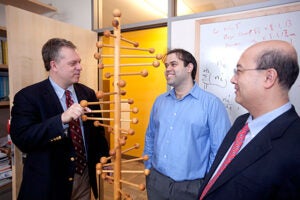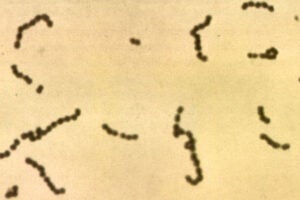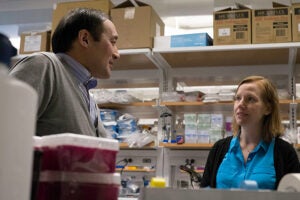Tag: Brigham and Women’s Hospital
-
Nation & World
A tiny, time-released treatment
Targeted nanotherapy is the wave of the medical future, according to Omid Farokhzad, a Harvard Medical School and Brigham and Women’s Hospital researcher who has two nanoparticle-based therapies in clinical trials and a slew of ideas for new ways to put the tiny capsules to work for human health.
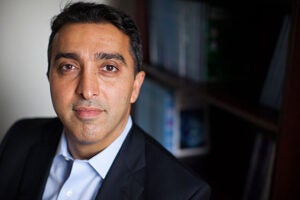
-
Nation & World
A strong, new voice
On Oct. 9, 2012, Taliban gunmen shot 15-year-old Malaa Yousafzai in the head as she rode home from school on a bus. She was simply trying education. On Sept. 27, Yousafzai was in Cambridge to receive the 2013 Peter J. Gomes Humanitarian of the Year Award.
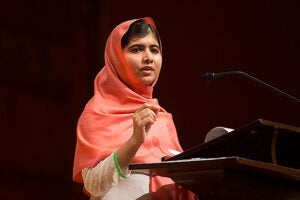
-
Nation & World
Marriage linked to better cancer outcomes
People who are married when diagnosed with cancer live longer than those who are not married. Married patients also tended to have cancers diagnosed at an earlier stage, according to Harvard researchers.

-
Nation & World
Developing cancer drugs
Harvard Stem Cell Institute researchers have identified in the most aggressive forms of cancer a gene known to regulate embryonic stem cell self-renewal, beginning a creative search for a drug that can block its activity.
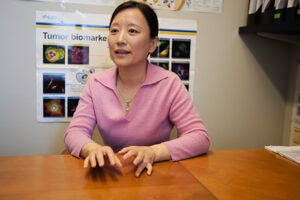
-
Nation & World
Healing hands for an ailing world
Benedict Nwachukwu, graduating with a dual M.D./M.B.A. degree, wants to apply the management skills he learned at Harvard Business School to the medical problems he finds in orthopedics and in global health.
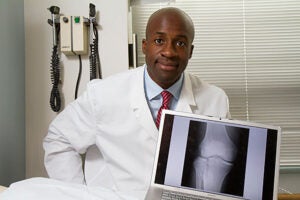
-
Nation & World
Challenge met
MatriTarg Laboratories, a venture created by a team of Harvard fellows seeking new ways to diagnose and treat solid organ fibrosis, claimed the grand prize in the inaugural Deans’ Health and Life Sciences Challenge.
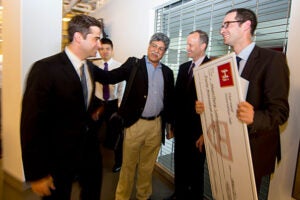
-
Nation & World
Hansjörg Wyss doubles his gift
Founding donor Hansjörg Wyss doubled his gift to Harvard’s Wyss Institute for Biologically Inspired Engineering from $125 million to $250 million to the University to further advance the institute’s pioneering work.
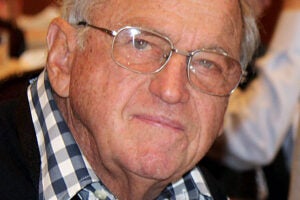
-
Nation & World
Using clay to grow bone
Researchers from Harvard-affiliated Brigham and Women’s Hospital (BWH) are the first to report that synthetic silicate nanoplatelets (also known as layered clay) can induce stem cells to become bone cells without the need of additional bone-inducing factors.
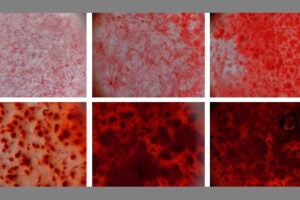
-
Nation & World
Widespread trauma
Members of the Harvard community responded to the Boston Marathon attacks and offered thoughts about both the physical and mental injuries they caused.

-
Nation & World
Environment counts, Alzheimer’s research suggests
A new study led by Harvard Medical School Professor Dennis Selkoe provides specific, pre-clinical scientific evidence supporting the concept that prolonged and intensive stimulation by an enriched environment may have beneficial effects in delaying one of the key negative factors in Alzheimer’s disease.
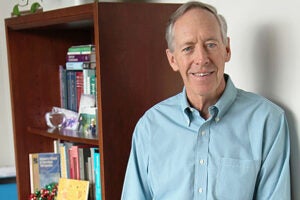
-
Nation & World
HMS partners with NFL Players Association
he National Football League Players Association (NFLPA) has awarded Harvard Medical School a $100 million grant to create a transformative 10-year initiative — Harvard Integrated Program to Protect and Improve the Health of NFLPA Members.
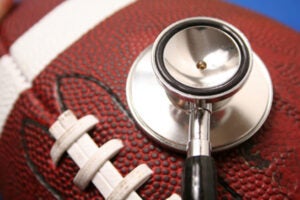
-
Nation & World
Problem with generic meds
Researchers from Harvard-affiliated Brigham and Women’s Hospital have found that some patients who receive generic drugs that vary in their color are over 50 percent more likely to stop taking the drug, leading to potentially important and potentially adverse clinical effects.
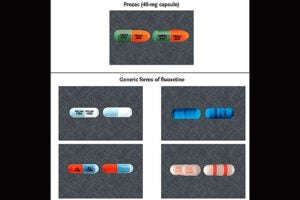
-
Nation & World
Birth of new cardiac cells
In a study from Harvard-affiliated Brigham and Women’s Hospital, researchers used a novel method to identify the new heart cells and describe their origins.
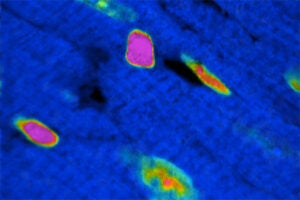
-
Nation & World
‘Stem cell tourism’ growing trend
A Harvard panel examined the problem of clinics around the world that provide stem cell treatments for intractable conditions. Although there is no medical evidence of the treatments’ effectiveness, such clinics have drawn thousands of patients from many countries.

-
Nation & World
Transplant pioneer dies at 93
Joseph E. Murray, emeritus professor of surgery at Harvard Medical School, whose many breakthroughs included the first successful kidney transplant, died Nov. 26, after suffering a hemorrhagic stroke at his Wellesley, Mass., home on Thanksgiving. He was 93.
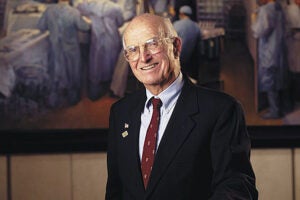
-
Nation & World
Catch and release
Researchers designed a chip that uses a 3-D DNA network made up of long DNA strands with repetitive sequences that — like the jellyfish tentacles — can detect, bind, and capture certain molecules.

-
Nation & World
When parasites catch viruses
Researchers have found that a protozoan parasite causing an STD that affects a quarter of a million people yearly is fueled in part by its own viral symbiont. Antibiotics that simply kill the parasite are not the solution.
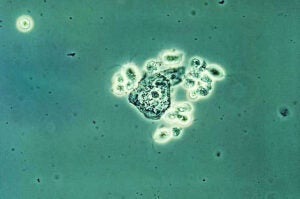
-
Nation & World
How much exercise is enough?
“We found that adding low amounts of physical activity to one’s daily routine, such as 75 minutes of brisk walking per week, was associated with increased longevity: a gain of 1.8 years of life expectancy after age 40, compared with doing no such activity,” explained Harvard Medical School Professor of Medicine I-Min Lee.
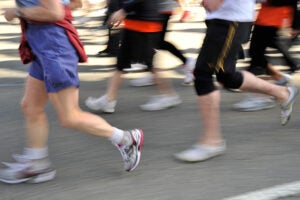
-
Nation & World
Probing sleep’s drowsy mystery
Harvard researchers have worked for years to understand better the familiar mystery of sleep, highlighting not only what happens when we close our eyes, but also the effects on us when we don’t.
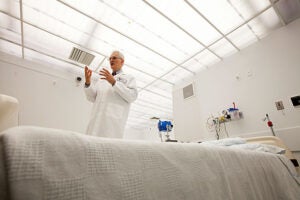
-
Nation & World
Aspirin’s impact on colorectal cancer
Harvard researchers at Dana-Farber Cancer Institute find that aspirin therapy can extend the life of colorectal cancer patients whose tumors carry a mutation in a key gene, but it has no effect on patients who lack the mutation.
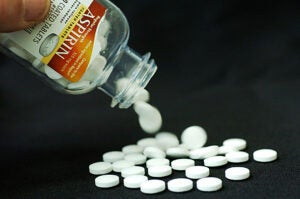
-
Nation & World
Skin cancer detection breakthrough
Researchers at Harvard-affiliated Brigham and Women’s Hospital have pinpointed when seemingly innocuous skin pigment cells mutate into melanoma.
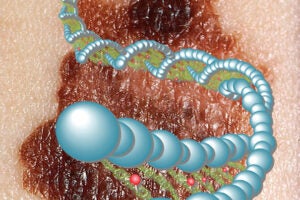
-
Nation & World
Pain relievers increase hearing loss risk
According to a study by researchers at Harvard-affiliated Brigham and Women’s Hospital, women who took ibuprofen or acetaminophen two or more days per week had an increased risk of hearing loss.
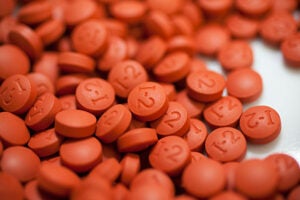
-
Nation & World
Women pay high price for high job strain
New research from Brigham and Women’s Hospital (BWH) finds that women with high job strain are more likely to experience a cardiovascular-related event compared with women with low job strain. These findings are published in the open access journal PLoS ONE.
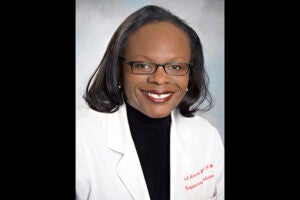
-
Nation & World
Clot-busting technology goes straight to work
Researchers at the Wyss Institute for Biologically Inspired Engineering at Harvard have developed a novel biomimetic strategy that delivers life-saving nanotherapeutics directly to obstructed blood vessels, dissolving blood clots before they cause serious damage or even death.
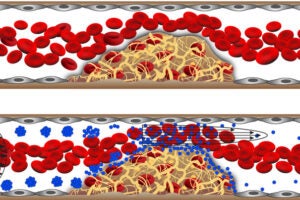
-
Nation & World
Heart attack worsens atherosclerosis
Researchers at Harvard Medical School and Harvard-affiliated Massachusetts General Hospital have found that the body’s immune response to heart attacks actually worsens atherosclerosis, increasing future heart attack risk, according to a study published in the journal Nature.
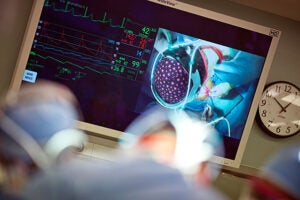
-
Nation & World
Brigham team implants artificial heart
The first complete artificial heart transplant in New England was performed at Harvard-affiliated Brigham and Women’s Hospital.
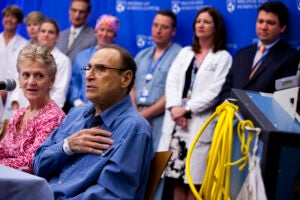
-
Nation & World
Exercise reduces psoriasis risk
A study by researchers at Harvard-affiliated Brigham and Women’s Hospital adds to the list of medical problems that exercise eases, showing that vigorous activity reduces a woman’s risk of developing the skin condition psoriasis by 25 to 30 percent over the study subject who exercised the least.
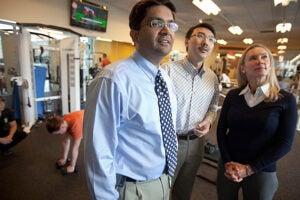
-
Nation & World
Thinking about health as an investor might
A “proof-of-concept” study that applies financial portfolio theory to federal life science research funding shows that potentially significant gains are available by altering the allocation of funding by the National Institutes of Health.
